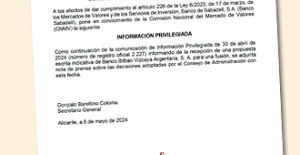It is an investigation worthy of a detective novel, begun in 2021, which has just reached its conclusion. According to information from France Inter confirmed by AFP, Monday February 26, agents of the National Directorate of Customs Intelligence and Investigations (DNRED) finished dismantling currency trafficking consisting of more than 15,000 coins looted in Turkey. The value of the approximately 8,500 antiquities found and the 7,000 pieces already lost in nature would peak at 1.5 million euros, according to estimates by experts from the National Library of France (BnF).
It all started, in 2021, with the interception of a package containing several antique objects of suspicious origin. Customs officials are questioning a Bulgarian man who tried to mail them to England to have them cleaned. The DNRED then noted that two companies which claim to specialize in numismatics, one English and one French, have the same name. On an internet page, these companies mainly offer currencies originating from Anatolia, in Turkey. This was all it took to alert the specialists: “usually, the fund offered is varied, in order to reach as many clients as possible,” specifies France Inter. From investigations to discoveries, the French authorities then became aware that illegal trafficking of parts was taking place between France and Turkey. For their part, Turkish customs arrested several people suspected of having trafficked cultural property. Research brings to light the name of a man residing in France.
The DNRED went to the home of this father in 2022. Customs agents then discovered 8,500 items distributed randomly in a modest apartment. “We realize that they are almost everywhere, we find them in a television cabinet, in freezer bags, in boxes in the four corners of the apartment,” said one of the investigators, a specialist in the trafficking of cultural goods, at France Inter. Among the packaging, a trash bag catches their attention. Inside are two small metal plates that Louvre experts will identify as an incantation plate and an exemption plate. The heritage value of these objects is inestimable, experts say.
This looting was made possible by networks “worthy of drug traffickers,” notes a member of customs. An investigator specializing in the trafficking of cultural goods explains to France Inter: “Generally, pieces are looted from villages by people who are in fairly precarious situations. The mafiosi will provide them with metal detectors so that they can search for treasures in their locality according to the stories they have heard and which have passed down through the generations. Once these materials have been recovered, collectors will go from village to village to buy these objects at a low price, and certainly not at the European market price.” The parts are also sent to the European Union “by transit countries – Austria, the Netherlands, Switzerland – which eventually arrive in France,” a manager of the DNRED investigation service told AFP.
The man responsible for selling the items must soon be summoned to court. He faces up to ten years in prison and a fine of 15 million euros, the looting having been committed by an organized gang. As for the objects themselves, French diplomacy will return them to Turkey. Damage to excavation sites, on the other hand, is irreversible.

 In Russia, Vladimir Putin stigmatizes “Western elites”
In Russia, Vladimir Putin stigmatizes “Western elites” Body warns BBVA that "the Government has the last word" in the takeover bid for Sabadell
Body warns BBVA that "the Government has the last word" in the takeover bid for Sabadell Finding yourself face to face with a man or a bear? The debate that shakes up social networks
Finding yourself face to face with a man or a bear? The debate that shakes up social networks Sabadell rejects the merger with BBVA and will fight to remain alone
Sabadell rejects the merger with BBVA and will fight to remain alone Fatal case of cholera in Mayotte: the epidemic is “contained”, assures the government
Fatal case of cholera in Mayotte: the epidemic is “contained”, assures the government The presence of blood in the urine, a warning sign of bladder cancer
The presence of blood in the urine, a warning sign of bladder cancer A baby whose mother smoked during pregnancy will age more quickly
A baby whose mother smoked during pregnancy will age more quickly The euro zone economy grows in April at its best pace in almost a year but inflationary pressure increases
The euro zone economy grows in April at its best pace in almost a year but inflationary pressure increases Apple alienates artists with the ad for its new iPad praising AI
Apple alienates artists with the ad for its new iPad praising AI Duration, compensation, entry into force... Emmanuel Macron specifies the contours of future birth leave
Duration, compensation, entry into force... Emmanuel Macron specifies the contours of future birth leave Argentina: the street once again raises its voice against President Javier Milei
Argentina: the street once again raises its voice against President Javier Milei Spain: BBVA bank announces a hostile takeover bid for its competitor Sabadell
Spain: BBVA bank announces a hostile takeover bid for its competitor Sabadell Jeane Manson released from hospital Friday after heart attack
Jeane Manson released from hospital Friday after heart attack In Normandy, frescoes and bunkers from 1939-1945 come back to life in bars, lodges and exhibitions
In Normandy, frescoes and bunkers from 1939-1945 come back to life in bars, lodges and exhibitions In an Austrian concentration camp, the ghosts of the deportees summoned by Chiharu Shiota
In an Austrian concentration camp, the ghosts of the deportees summoned by Chiharu Shiota Tax fraud: Shakira is done with her legal troubles in Spain
Tax fraud: Shakira is done with her legal troubles in Spain Omoda 7, another Chinese car that could be manufactured in Spain
Omoda 7, another Chinese car that could be manufactured in Spain BYD chooses CA Auto Bank as financial partner in Spain
BYD chooses CA Auto Bank as financial partner in Spain Tesla and Baidu sign key agreement to boost development of autonomous driving
Tesla and Baidu sign key agreement to boost development of autonomous driving Skoda Kodiaq 2024: a 'beast' plug-in hybrid SUV
Skoda Kodiaq 2024: a 'beast' plug-in hybrid SUV The home mortgage firm rises 3.8% in February and the average interest moderates to 3.33%
The home mortgage firm rises 3.8% in February and the average interest moderates to 3.33% This is how housing prices have changed in Spain in the last decade
This is how housing prices have changed in Spain in the last decade The home mortgage firm drops 10% in January and interest soars to 3.46%
The home mortgage firm drops 10% in January and interest soars to 3.46% The jewel of the Rocío de Nagüeles urbanization: a dream villa in Marbella
The jewel of the Rocío de Nagüeles urbanization: a dream villa in Marbella Institutions: senators want to restore the accumulation of mandates and put an end to the automatic presence of ex-presidents on the Constitutional Council
Institutions: senators want to restore the accumulation of mandates and put an end to the automatic presence of ex-presidents on the Constitutional Council Europeans: David Lisnard expresses his “essential and vital” support for François-Xavier Bellamy
Europeans: David Lisnard expresses his “essential and vital” support for François-Xavier Bellamy Facing Jordan Bardella, the popularity match turns to Gabriel Attal’s advantage
Facing Jordan Bardella, the popularity match turns to Gabriel Attal’s advantage Europeans: a senior official on the National Rally list
Europeans: a senior official on the National Rally list These French cities that will boycott the World Cup in Qatar
These French cities that will boycott the World Cup in Qatar Champions League: when a superstitious supporter brings luck to Real Madrid
Champions League: when a superstitious supporter brings luck to Real Madrid WRC: Neuville in the lead in Portugal after the first special
WRC: Neuville in the lead in Portugal after the first special Atalanta-OM: in video, the beautiful Ruggeri strike in the top corner of Lopez
Atalanta-OM: in video, the beautiful Ruggeri strike in the top corner of Lopez Tennis: expeditious, Swiatek qualifies for the 3rd round in Rome
Tennis: expeditious, Swiatek qualifies for the 3rd round in Rome


















